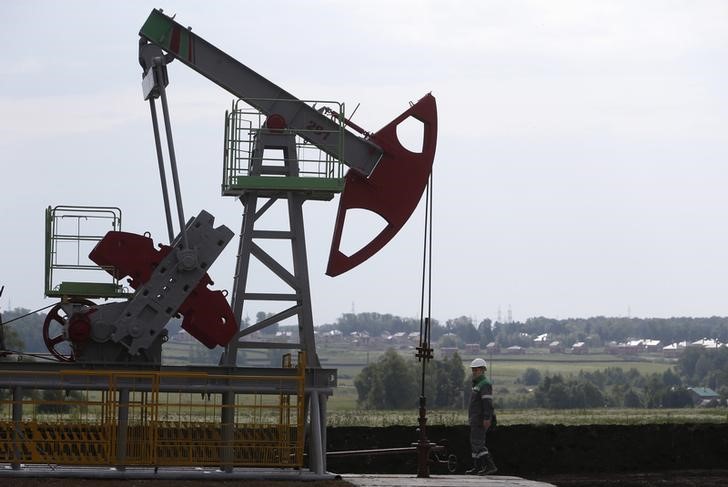Investing.com -- Crude oil prices fell Tuesday after weak trade data from China pointed to a sluggish post-COVID rebound for the world's largest oil importer.
By 09:50 ET (13.50 GMT), the U.S. crude futures traded 1.7% lower at $80.56 a barrel, while the Brent contract dropped 1.5% to $84.02. Both contracts slid over 1% on Monday, breaking a six-day winning streak.
Weak Chinese trade data weighs
Data released earlier Tuesday showed that China's imports and exports fell much faster than expected in July, with imports down 12.4% year-on-year, missing a forecast fall of 5%, while exports contracted 14.5%, steeper than an expected 12.5% decline.
In particular, oil imports in July to China, the top crude importer, were down 18.8% on a monthly basis.
Economic weakness in China has weighed on the crude markets this year, as the world’s second-largest economy was expected to rebound swiftly from its COVID restrictions, providing fuel consumption growth while many of the Western economies struggled with aggressive monetary tightening.
Strong dollar, inflation uncertainty weighs
Strength in the dollar, amid growing uncertainty over the path of U.S. interest rates, also weighed on the price of oil
The greenback saw increased bids this week as investors positioned themselves for a potentially stronger consumer price index inflation reading on Thursday. While U.S. inflation decreased substantially this year, it still remained well above the Federal Reserve’s annual target range, potentially attracting a sustained hawkish stance from the central bank.
Rising interest rates, or even higher-for-longer rates, are expected to weigh on economic activity in the remainder of the year - which investors fear could stymie global oil demand.
U.S. crude stockpile estimates due
Attention will soon turn to the latest U.S. inventories data, which could provide clues about current demand in the world’s largest consumer.
The American Petroleum Institute, an industry body, is scheduled to release its estimate of U.S. crude inventories later in the session and is projected to show another drawdown after last week’s hefty fall.
Production cut extensions had boosted sentiment
Despite the losses this week, the crude market had climbed to four-month highs last week as extended production cuts by major suppliers Saudi Arabia and Russia had raised expectations of tighter supplies.
Saudi Arabia announced on Thursday that it will keep trimming production by 1 million barrels per day through September, while Russia said it will cut oil exports by 300,000 barrels a day.
(Ambar Warrick contributed to this item.)
